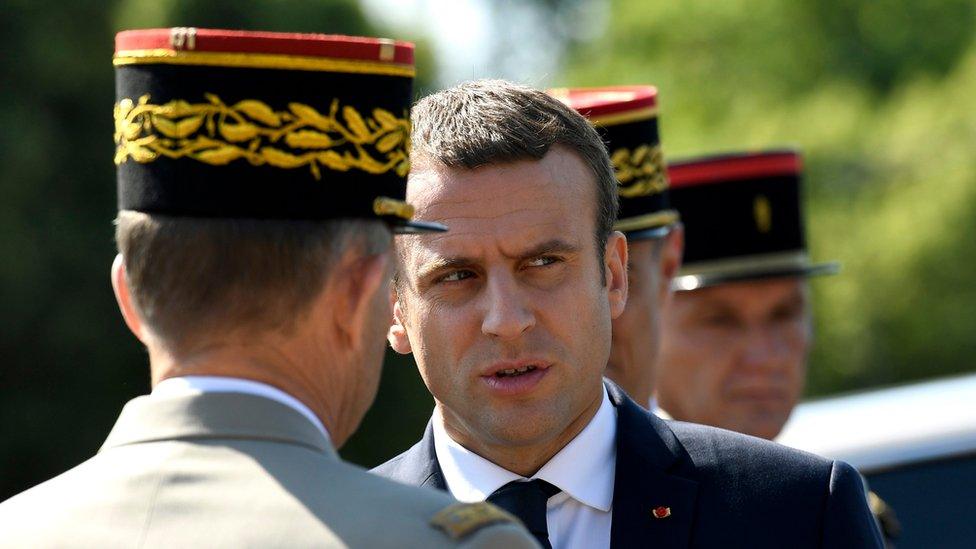Emmanuel Macron aboard France's Le Terrible nuclear submarine
- Published
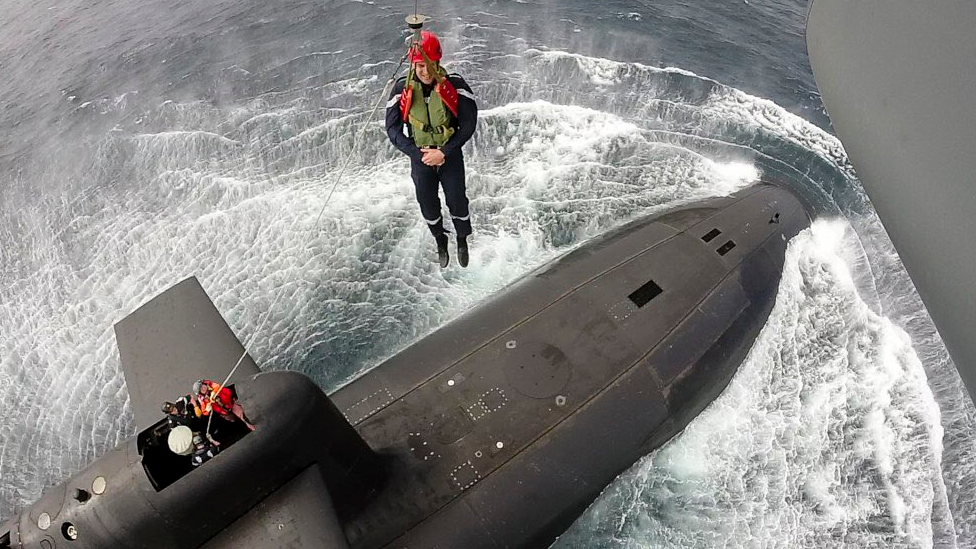
President Macron was lowered down from a helicopter on to the submarine in the Atlantic
President Emmanuel Macron has spent several hours underwater aboard a nuclear submarine to signal commitment to France's nuclear deterrent.
During the visit to the submarine, "Le Terrible", off the Brittany coast, Mr Macron reportedly took part in a simulated missile launch.
France will be the sole EU nation with nuclear arms after 2019, when the UK is expected to leave the 28-member bloc.
Meanwhile, the new French government easily won its first confidence vote.
The cabinet led by Prime Minister Edouard Philippe was backed by 370 MPs in the lower house, with only 67 voting against.
Mr Philippe set out proposals for public spending cuts and labour reforms - a move condemned by the trade unions, who have threatened protest strikes in the autumn.
On Tuesday, President Macron was taken by helicopter to "Le Terrible" submarine in the Atlantic, about 300km (186 miles) off France's coast.
Mr Macron's office later published a photo, showing the president being lowered on to the submarine.
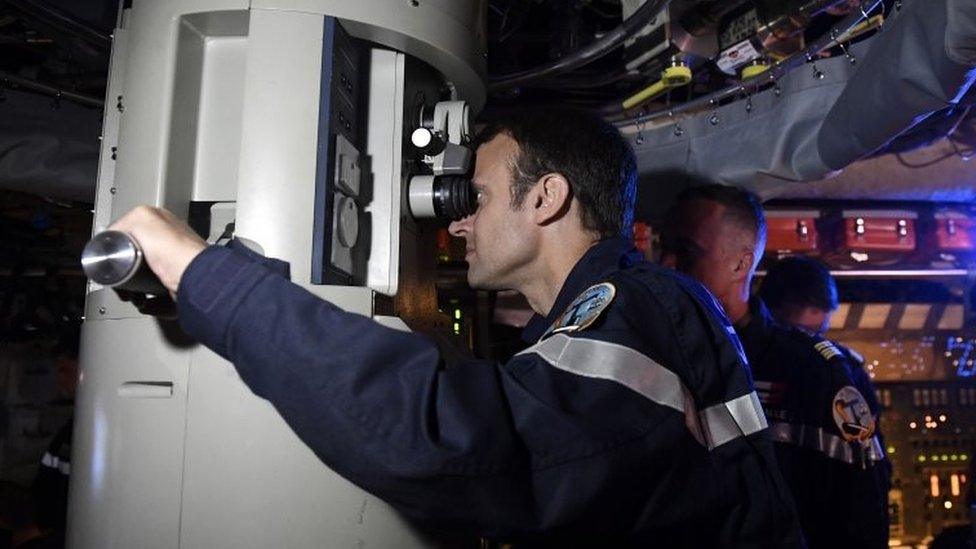
Mr Macron was given a tour of the vessel's operational centre
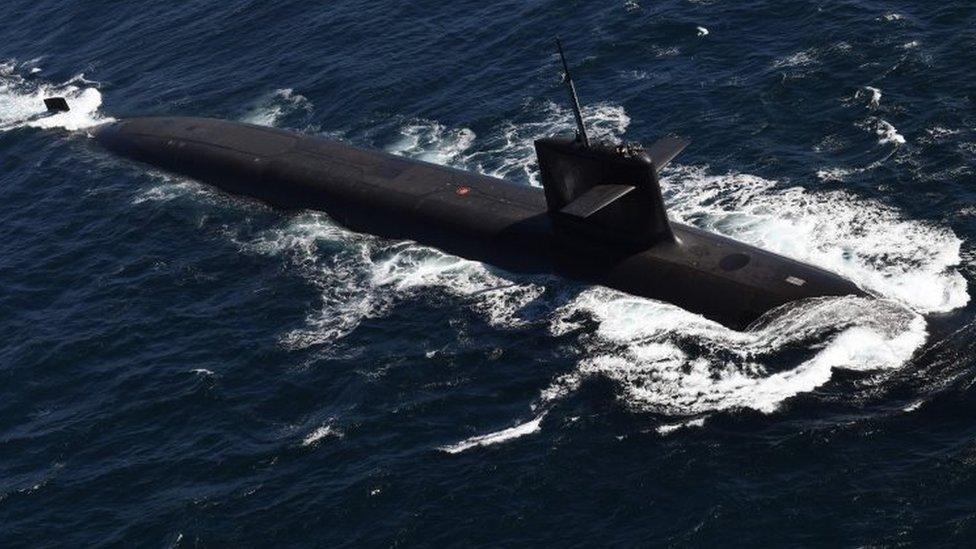
France has a fleet of nuclear-armed submarines, including Le Terrible
Mr Macron stressed the importance of France's nuclear deterrent, describing it as the "keystone of security".
The reported missile launch simulation was part of the president's day-long visit to nuclear weapons facilities at the Ile Longue base, near Brest.
It is home to the country's four nuclear-powered, ballistic missile-carrying submarines.
France maintains a fleet of nuclear-armed submarines and strike planes, and has about 300 operational nuclear warheads.
Support for the deterrent is deeply rooted in French society and history, ever since it became a nuclear power in the 1960s, correspondents say.
- Published28 March 2012
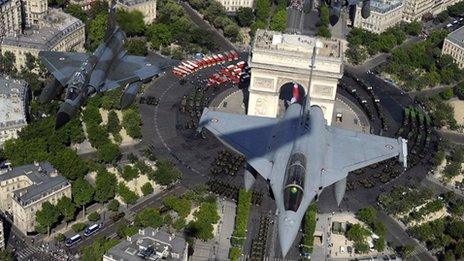
- Published3 July 2017
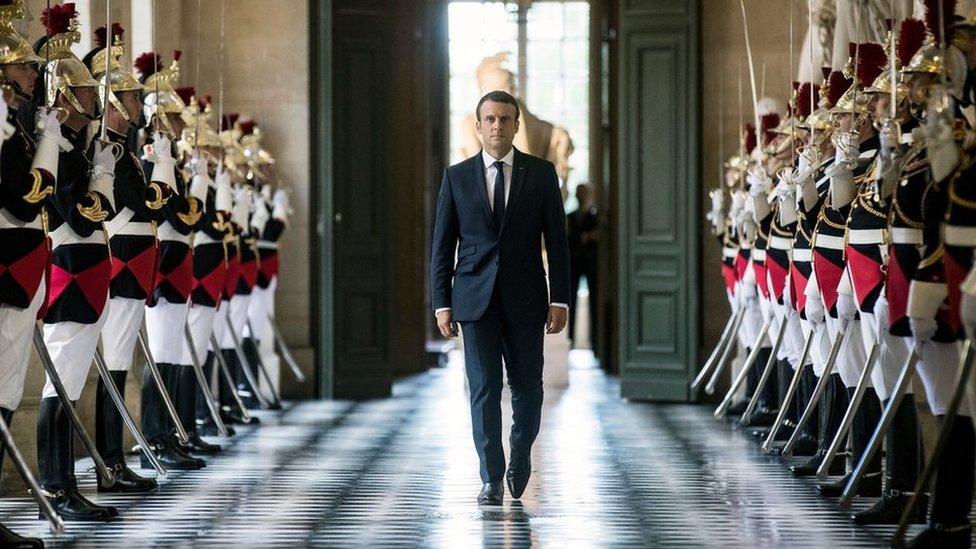
- Published18 June 2017
